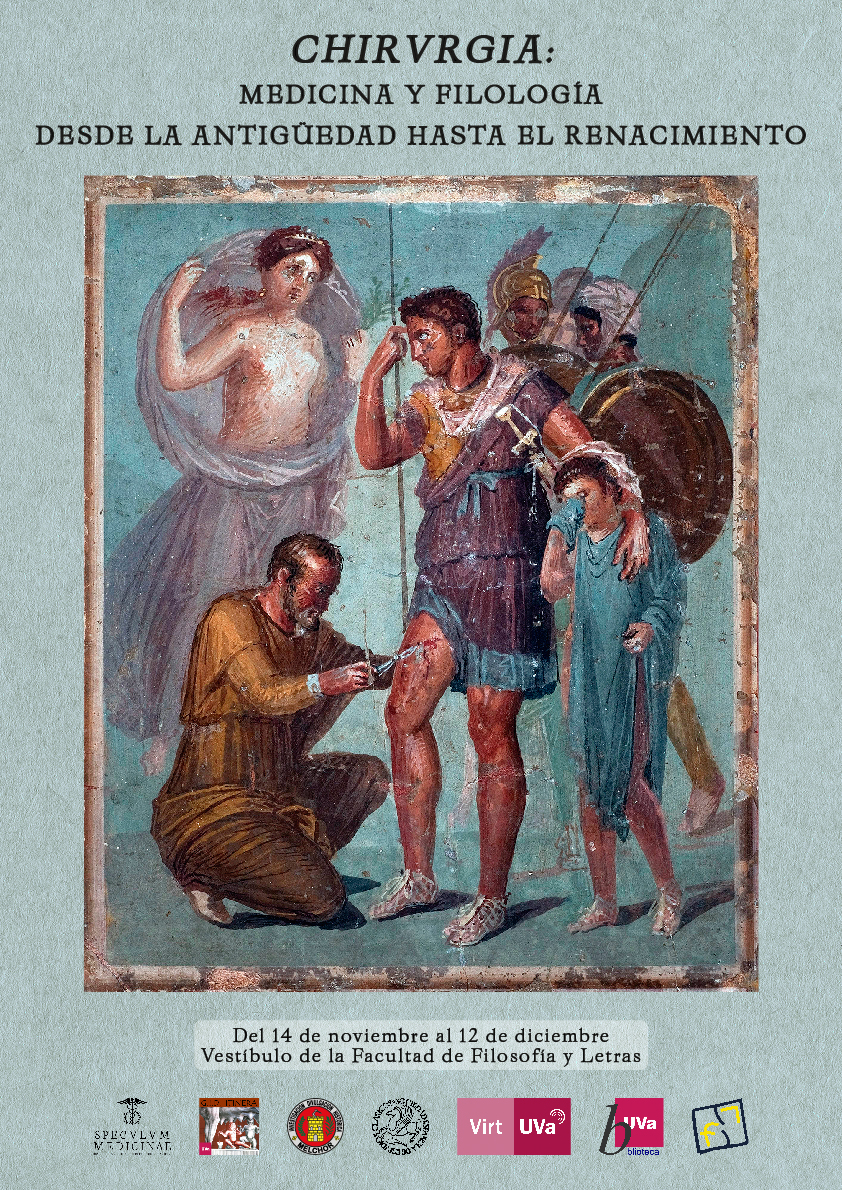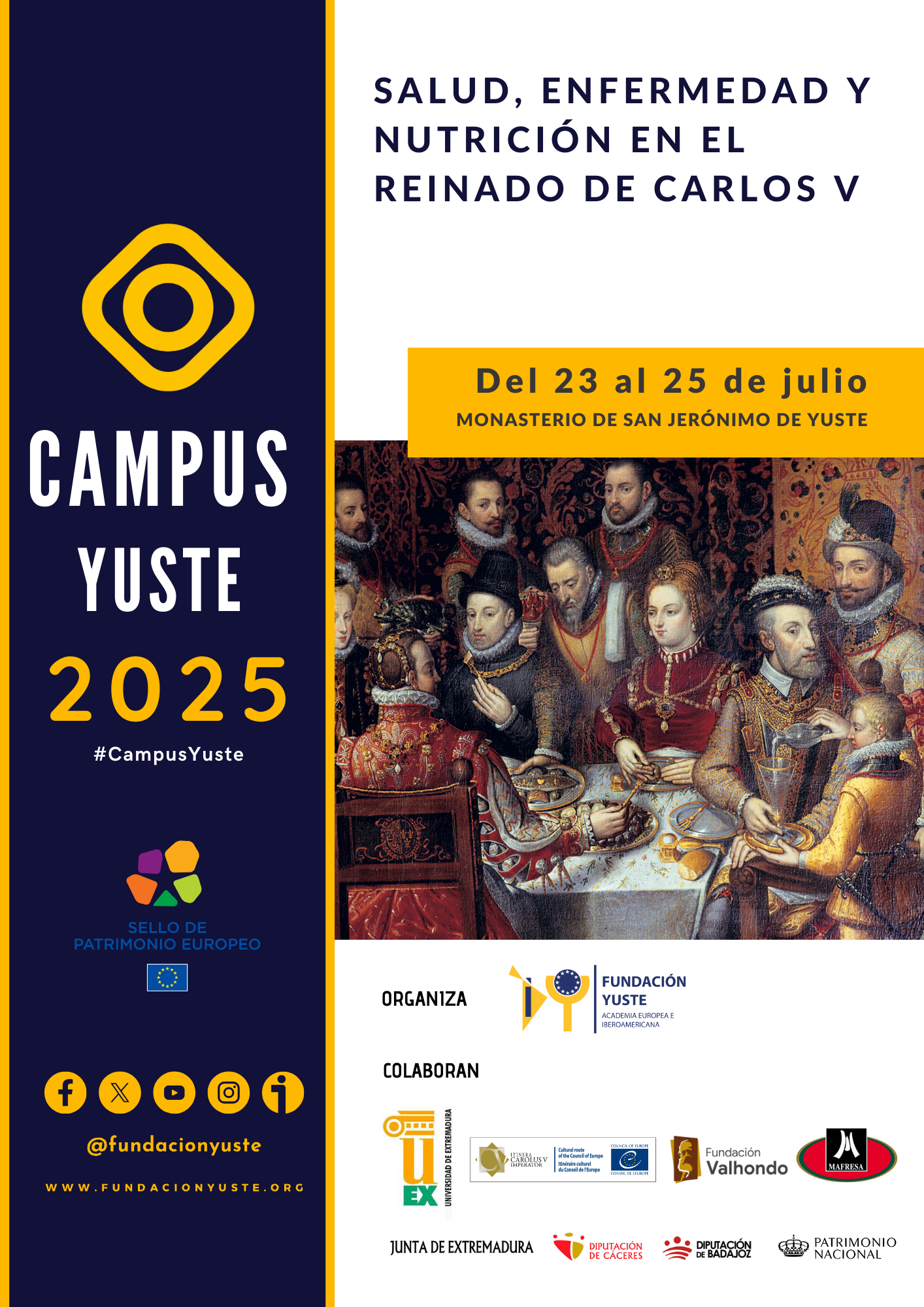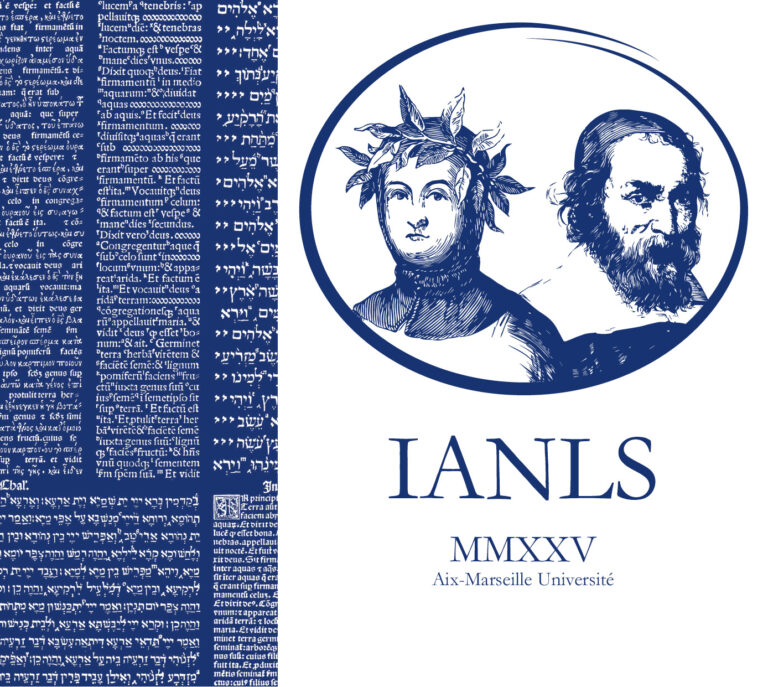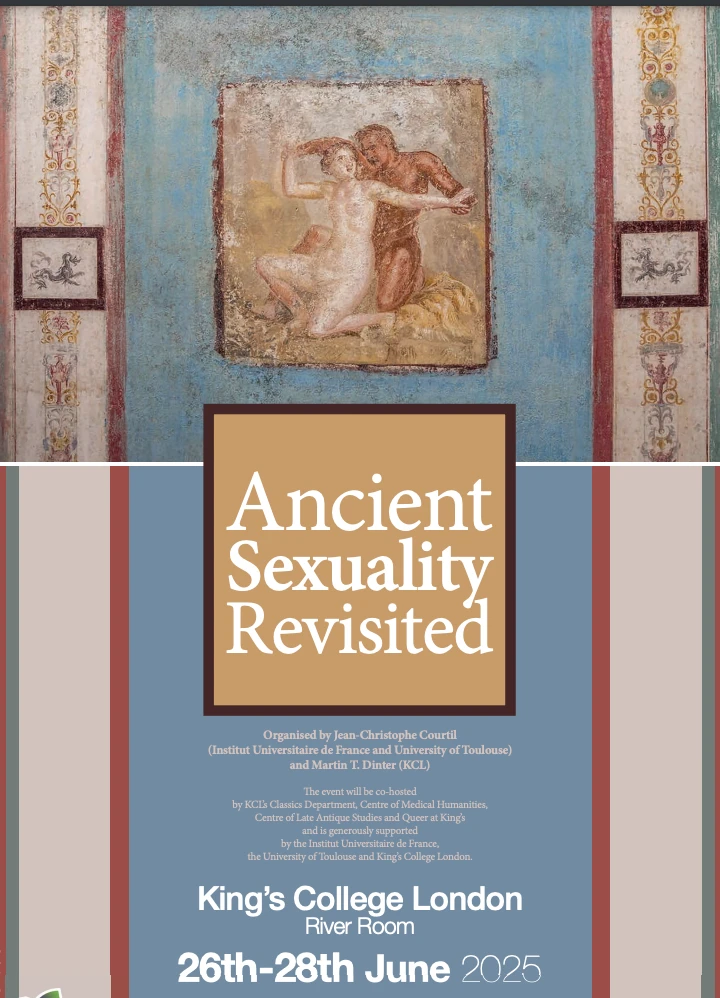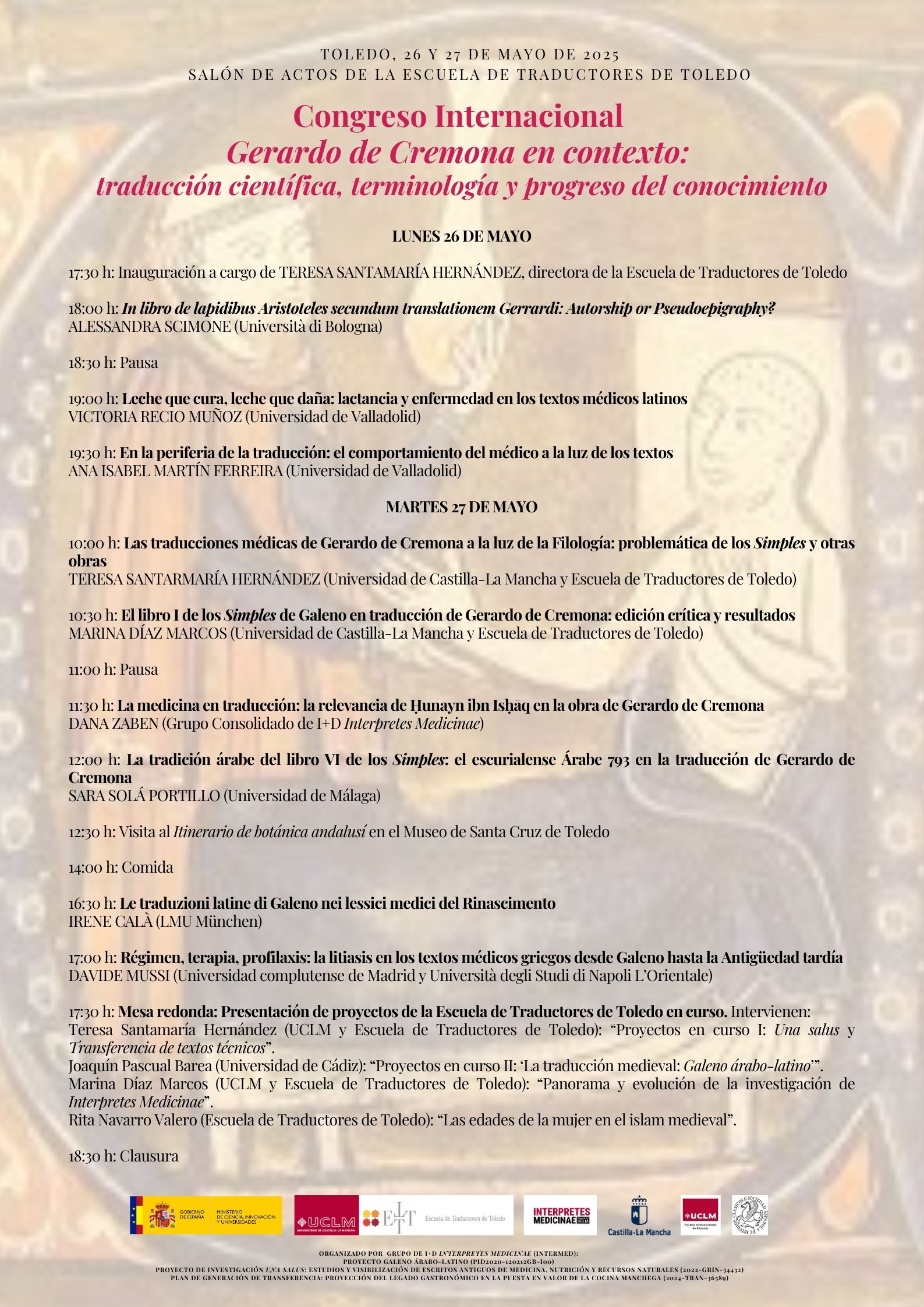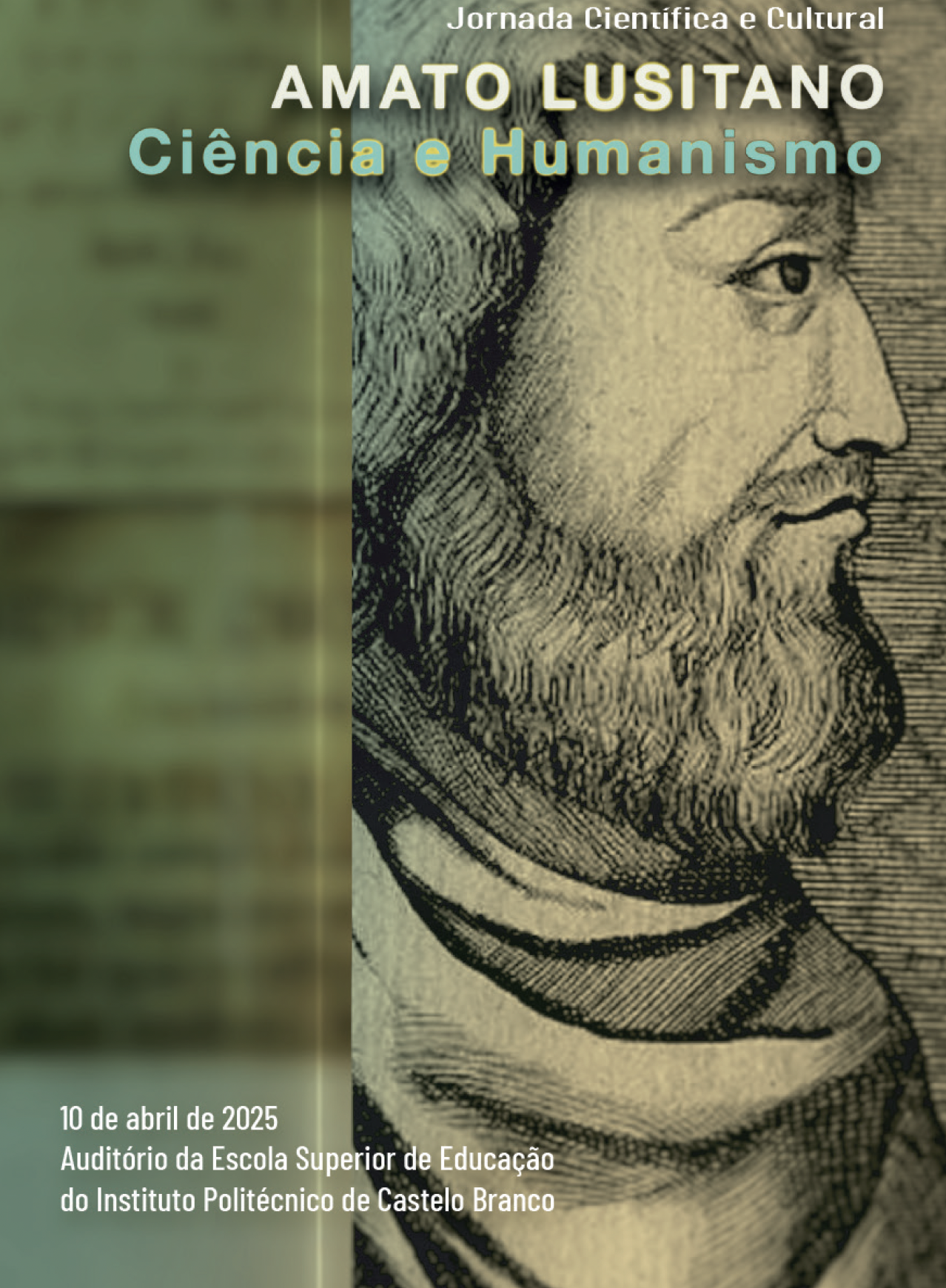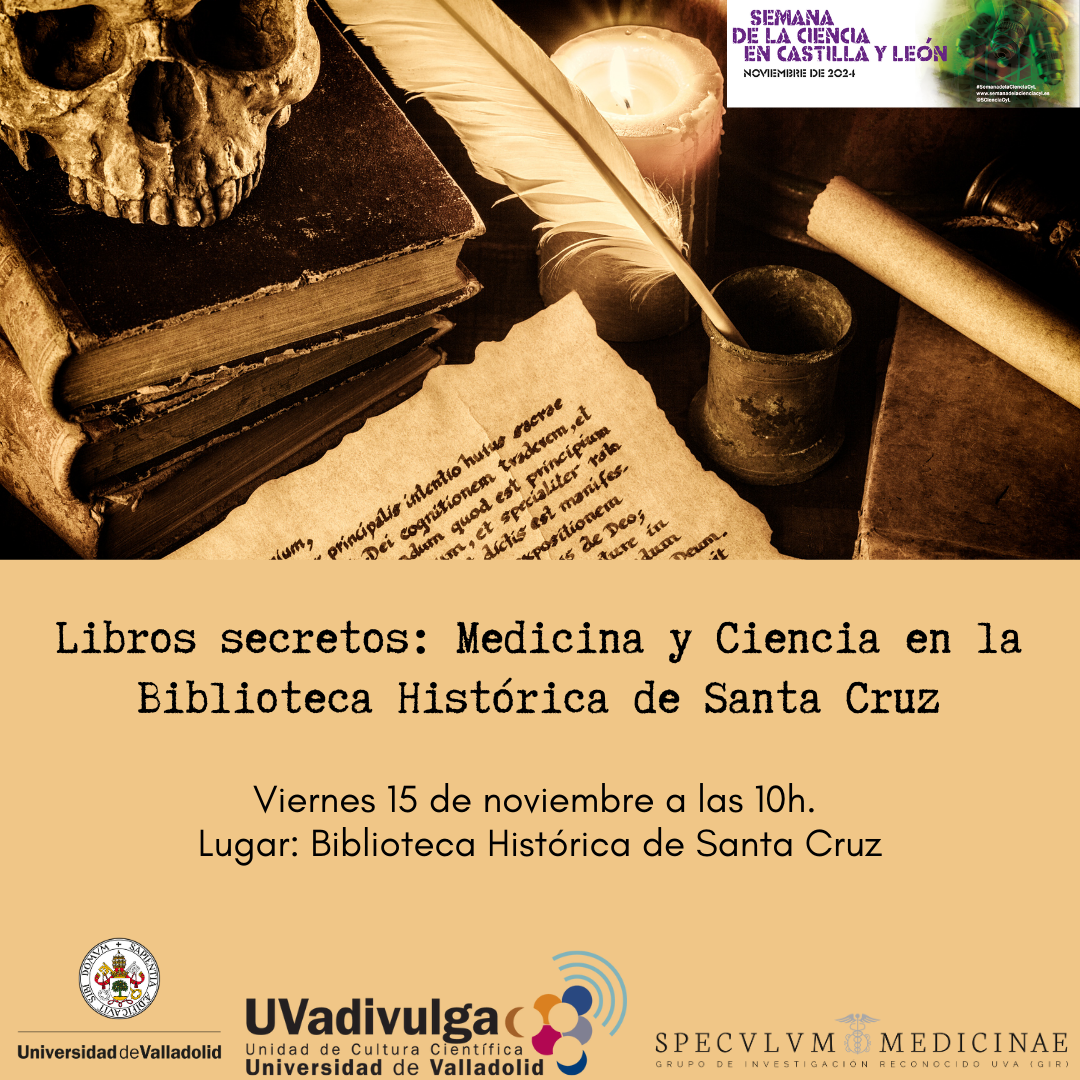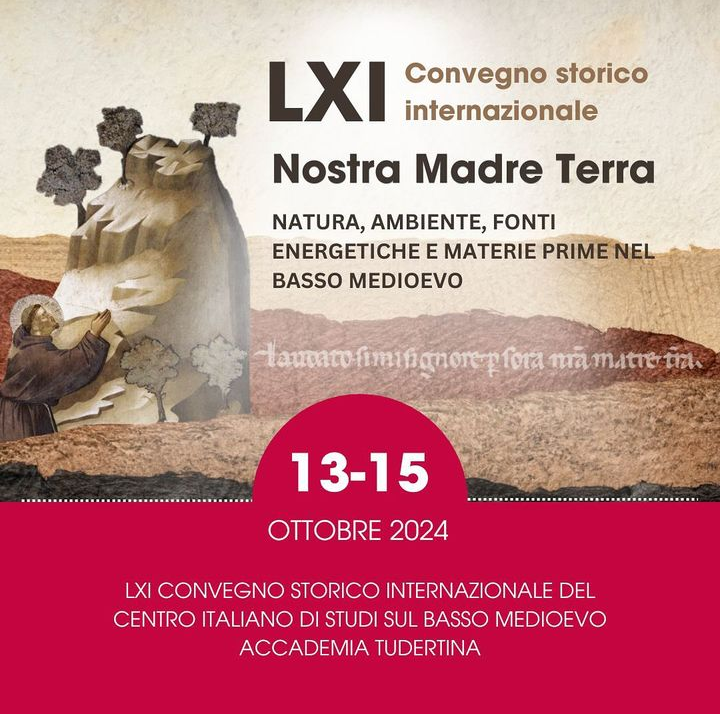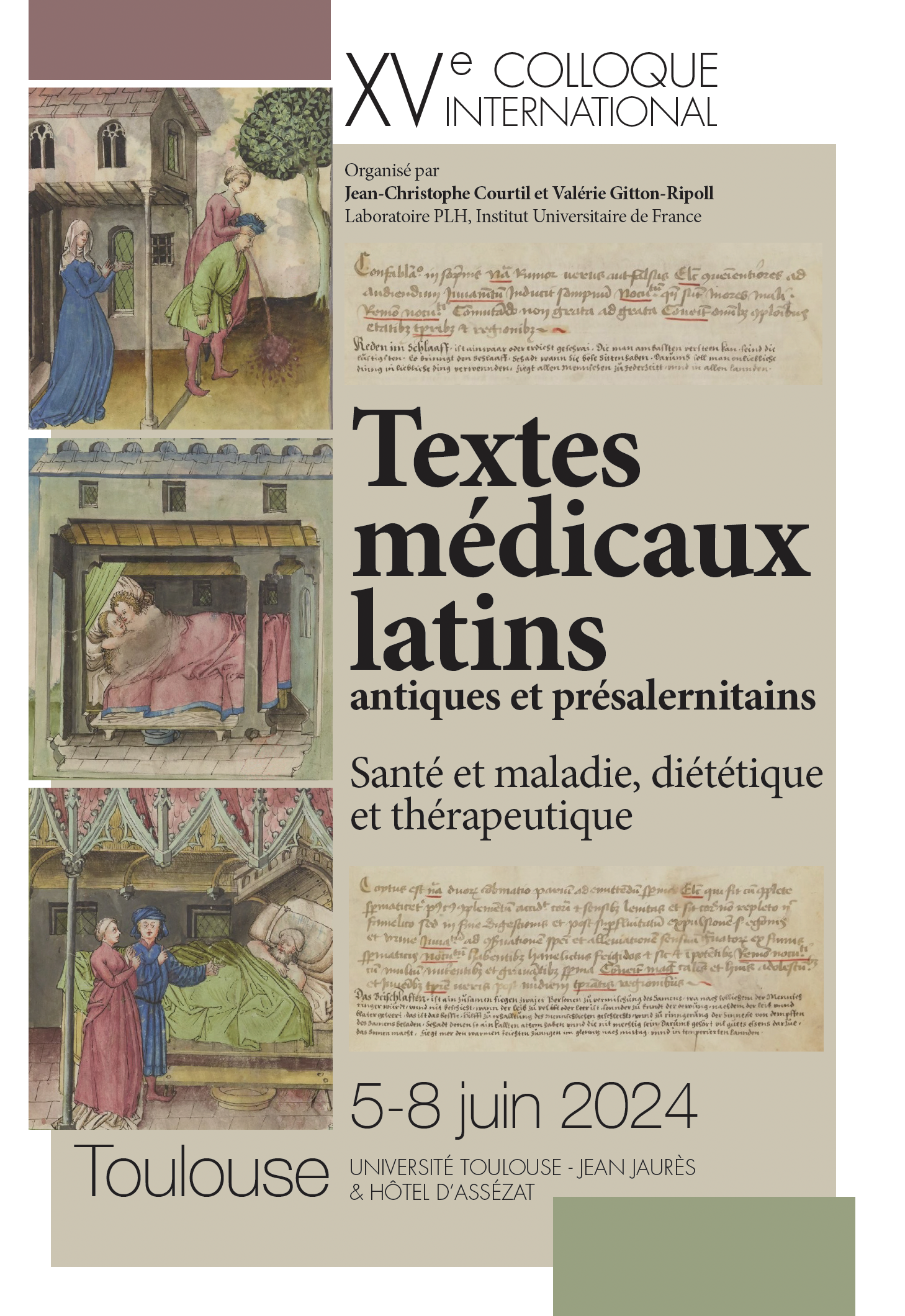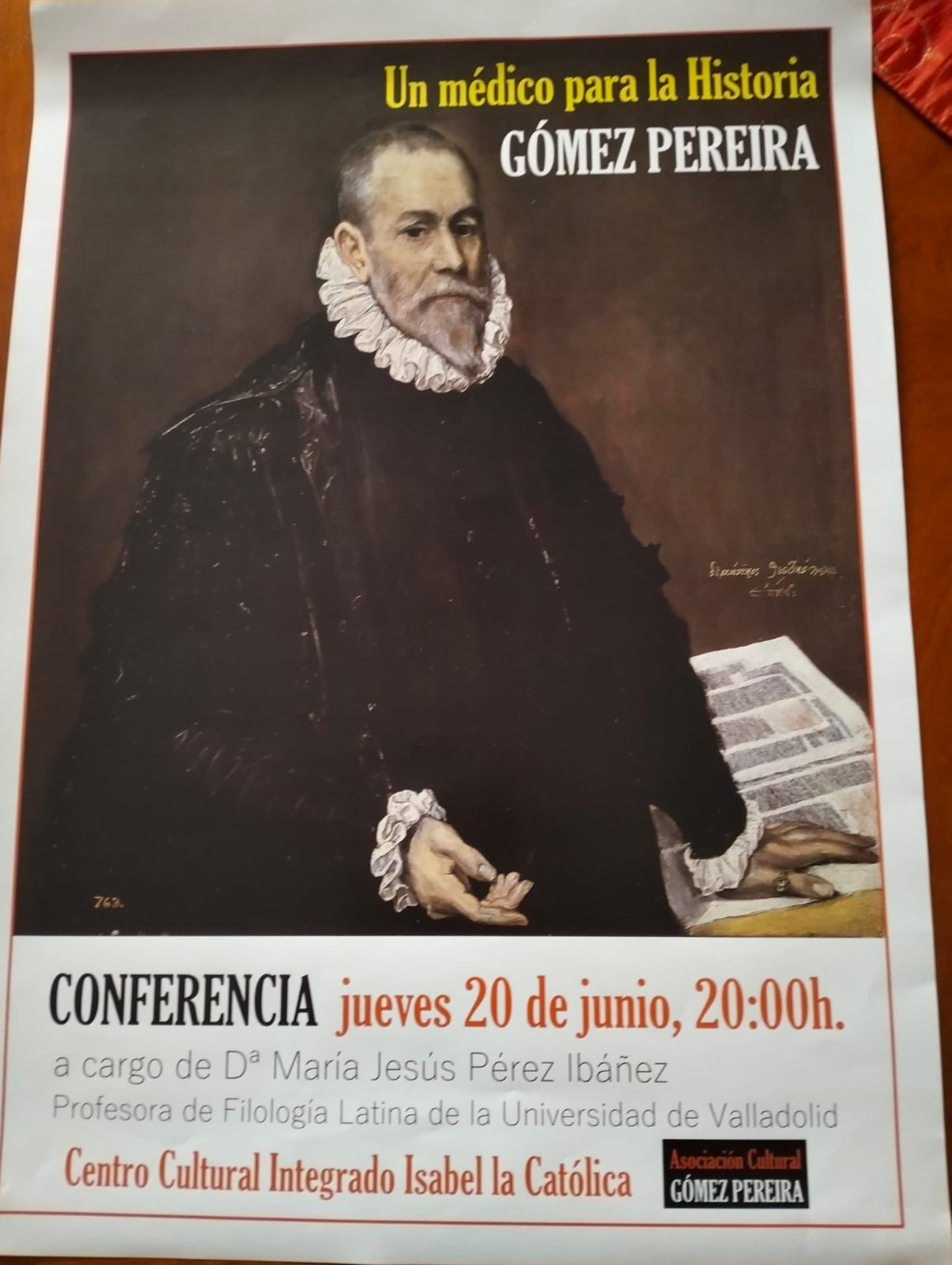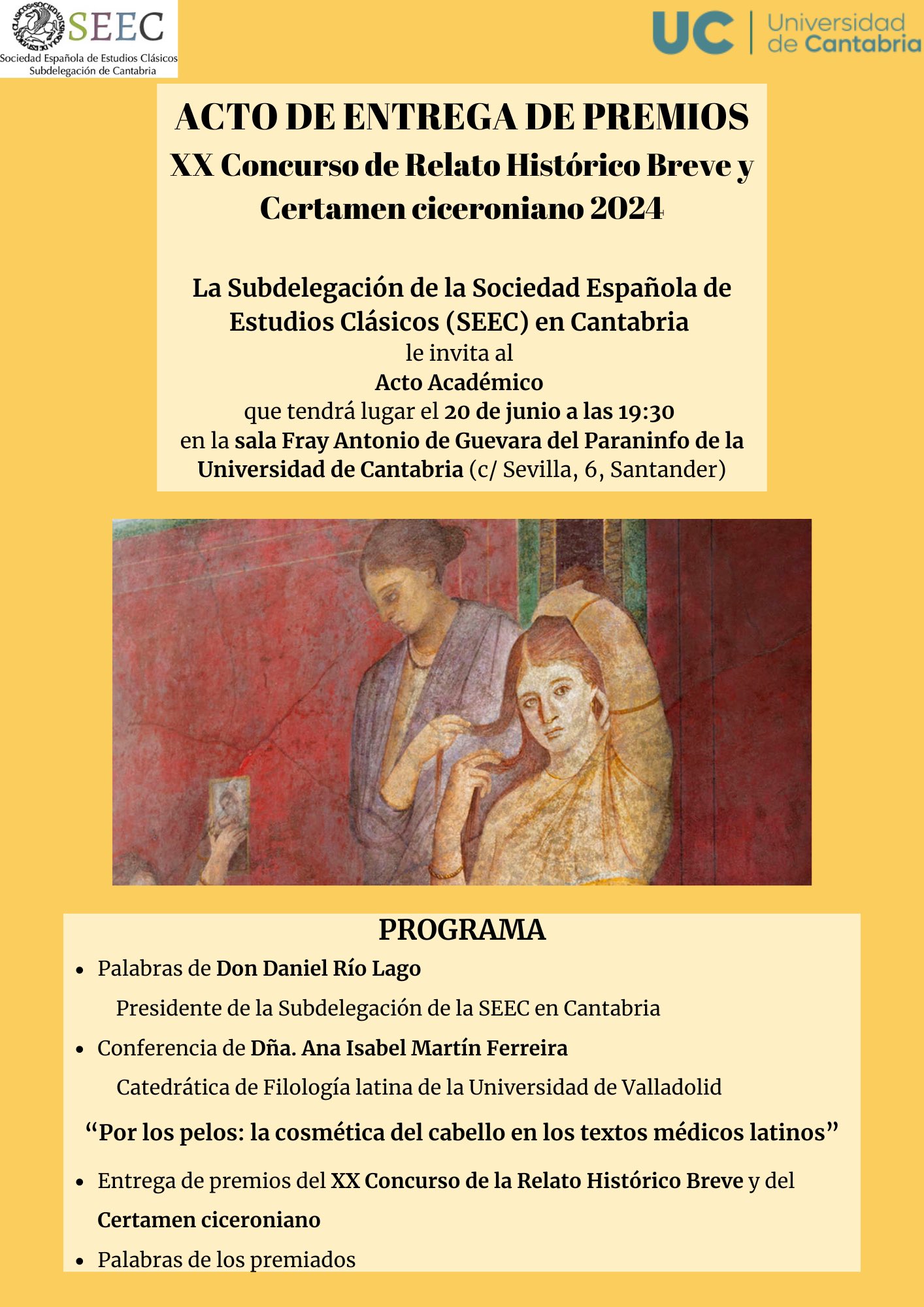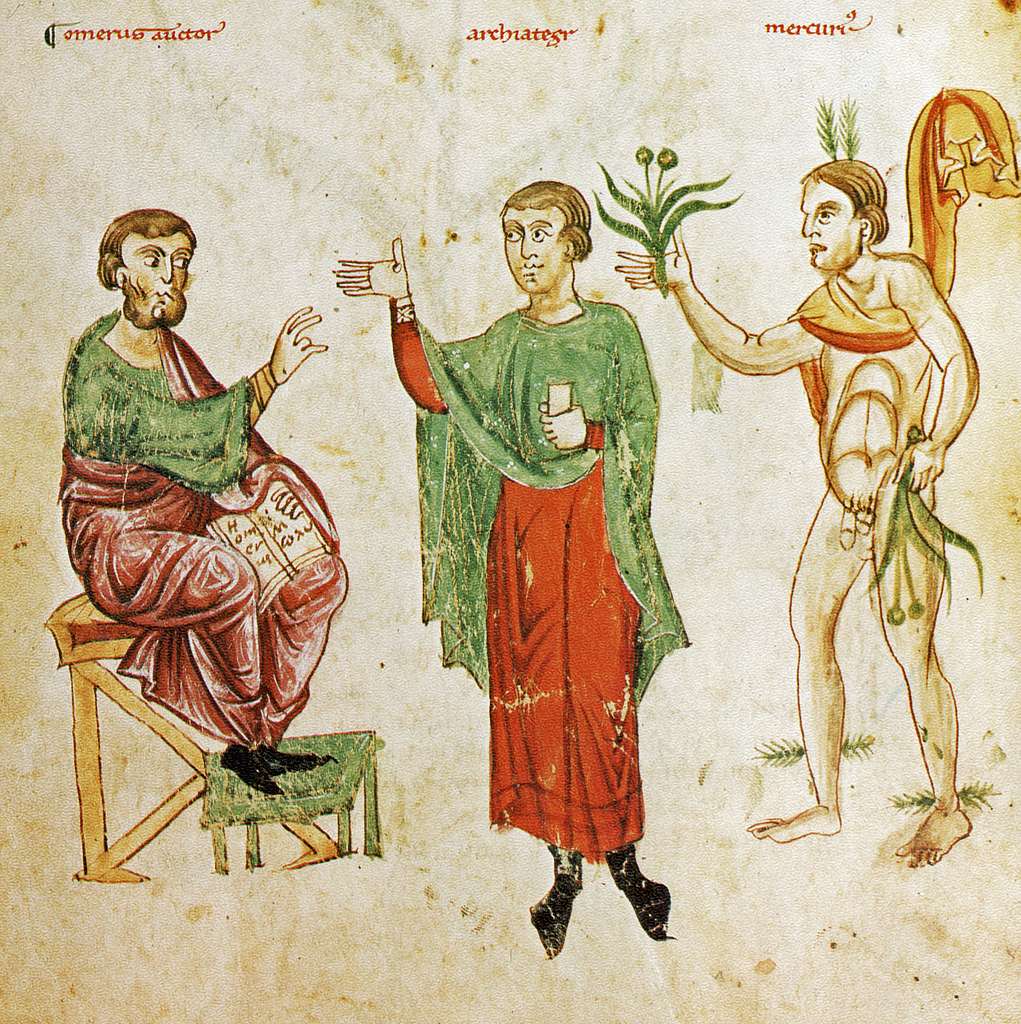Who we are
The Speculum Medicinae Recognised Research Group is a University of Valladolid research group whose aim is the philological study of Latin science and medicine from Antiquity, the Middle Ages, and the Renaissance, the periods par excellence of the history of the Latin language. The group’s research work is divided into three fields: the history of medical terms, medicine and literature, and the critical edition of texts.
History
The history of our research group dates back many years to the years 1985-1986, when funding was awarded as part of the “New research groups” programme, set up by the Secretary of State for Universities and Research, and benefitting from the incorporation of Enrique Montero as a teacher at the University of Valladolid.
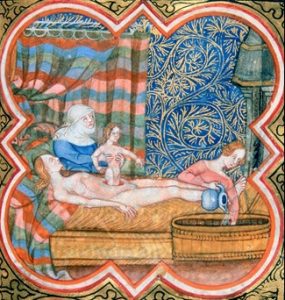 Since then, a research infrastructure has been established geared towards European medieval and Renaissance medicine in general, and Hispanic, in particular. These are areas in which philological issues had traditionally been overlooked and in which historians as a whole, and those working in the field of medicine in particular, had never been able to draw on the help of those who, thanks to their training, could directly study sources and provide them with reliable texts. This was despite the existence of such renowned Hispanic authors as Arnaldo de Villanova or universities with faculties of medicine as distinguished as Salamanca, Alcalá, Valladolid or Valencia, which boasted some of the most well-known authors and works to emerge at the dawn of modern Europe.
Since then, a research infrastructure has been established geared towards European medieval and Renaissance medicine in general, and Hispanic, in particular. These are areas in which philological issues had traditionally been overlooked and in which historians as a whole, and those working in the field of medicine in particular, had never been able to draw on the help of those who, thanks to their training, could directly study sources and provide them with reliable texts. This was despite the existence of such renowned Hispanic authors as Arnaldo de Villanova or universities with faculties of medicine as distinguished as Salamanca, Alcalá, Valladolid or Valencia, which boasted some of the most well-known authors and works to emerge at the dawn of modern Europe.
In relation to this field, since 1988 the regional directorate general for research has been awarding the group various research grants dedicated to issues such as “Renaissance medical humanism and the problem of language” or the “Nebrija Dictionarium Medicum”. This has led to the creation of a broad and well-established team of people who are specialised and highly qualified in these topics.
The presentation of numerous final degree projects and Doctoral Theses (15 theses between 1993 and 2017, together with a further two currently being prepared (one of which is scheduled for submission in late 2020) plus another two pending admission to the Doctorate School in the coming academic year) along with the publication of a significant number of monographs and articles in various national and international journals have led to our team becoming known not only at a national scale but also in the international area, as is evidenced by the references and reviews of our works.
The team, which is currently coordinated by Ana Isabel Martín Ferreira due to the generational replacement demanded by the years, has also published numerous critical editions of medical medieval and Renaissance texts, such as E. Montero, editor of the Tractatus de Sterilitate. Anónimo de Montpellier, or the De stomacho by Constantine the African, A.I. Martín, editor of Liber de elephancia by Constantine the African, M.A. González editor of Arnaldo de Villanova and translator of Giovan Battista della Porta and of Andrés Laguna, P. Conde, editor of De conceptu. Tractatus sterilitate mulierum, A. García González, editor of the famous glossary known as Alphita, C. de la Rosa editor of Summa medicinae, V. Recio, editor and translator of Practica of Salernitan Platearius or Nelia R. Vellisca, editor and translator of the humanist physician Cristóbal de Vega.
Apart from numerous articles, all of the researchers in the team have also published monographic studies on medical aspects of Antiquity and the Renaissance, such as those devoted to the study of texts and authors of 16th century medical humanism at the leading Spanish universities: A.I. Martín is author of a monograph on the University of Alcalá (the former Complutense), M.J. Pérez has published another on the University of Salamanca, and J.I. Blanco one corresponding to the University of Valladolid. In addition, M.A. González has written several monographs on the physician Andrés Laguna from Segovia, while P. Conde has published a monograph on the career of the Latin physician Celso in 16th century medicine.
In addition, we have always been fortunate to enjoy the cooperation of a Hellenist, Mª C. Herrero, who is today retired, and who has worked on the Greek roots of Alphita and has studied in depth the tradition of the Latin versions of the medical treatises of Alexander of Tralles, as well as having translated and studied, in conjunction with M.A. González, two magnificent examples of the Latin Dioscorides, published as a facsimile edition by the Vatican library.
The members of the research group, either individually or as a team, have been involved in all of the national and international conferences in which aspects of medicine and its texts related to the periods addressed in our studies have been dealt with. Prominent amongst these, for example, have been the recent participations by our researchers at the following scientific meetings over the last five years: Seminarios-Debates del ISTA (Institut des Sciences et Tecniques de l’Antiquité): “Ciencia y tecnología en la Antigüedad, Edad Media y Renacimiento” (Besancon 2015), 16th Symposium of the Mediävistenverband: Water in Medieval Culture (Berne 2015), XVth International Congress of the IANLS (Vienna, 2015), VIII Congreso de la Sociedad de Estudios Latinos. Otium et negotium, el legado de Roma (Leon, 2016), Colloque International “Laurent Joubert médecin et écrivain 1529-1582” (Lyon 2018), Colloque international sur les Textes Médicaux Latins: «Métaphores et images médicales, d’Alexandrie à Salerne» (Reims 2018), XXI Simposio de la Sociedad Española de Historia de la Medicina (Granada 2018), XVIIth International Congress of the IANLS (International Association for Neo-Latin Studies): Homines et natura: Artes et scientiae in litteris neo-latinis traditae (Albacete 2018. With a monographic session on Amato Lusitano), IX Congreso Internacional ORBIS LATINVS. Las lenguas clásicas, patrimonio cultural inmaterial de la humanidad (SELAT. Granada 2019), VI Seminario Internacional de Investigación ‘Textos Médicos Grecolatinos’: El patrimonio textual de la ciencia europea: identidad científica a través de lenguas y docrinas (Albacete 2019).
Our career as a team has been acknowledged through various awards, individually through the recognition of so many years’ collective effort, as well as through our becoming established as a GIR (Recognised Research Group) by the University of Valladolid, in addition to gaining the distinction as a GIEX (Excellence Research Group), by the Regional Government of Castilla y Leon (GR22, 2007).
The joint results of the latest projects awarded by the Ministry of Economy have been the DILAGE: “Diccionario Latino de Andrología, Ginecología y Embriología” (Antiquity, Middle Ages, and Renaissance) [Brepols, Rome, 2018]. This is a specialised and chronologically broad lexicon which has filled a gap that has remained neglected in more general and/or specific dictionaries. There is also the monographic issue dedicated to Amato Lusitano, volume 7 (2019) of ehumanista/Conversos, which has just been posted online by the University of California (2019) http://www.ehumanista.ucsb.edu/conversos, and the monograph Praxi theoremata coniungamus. Amato Lusitano y la medicina de su tiempo, Madrid, Escolar y Mayo, 2019 ISBN 978-84-17134-95-2.
In sum, in addition to forming a close-knit group, as can be seen through the research line of the curricula posted on our webpage (http://speculummedicinae.uva.es/speculum-medicinae/), the team is amply qualified and enjoys long-running experience in the field of medical lexicography, in the critical edition of texts, and in the study of medical works from the ancient, medieval and Renaissance periods. This has encouraged us to undertake a new and particularly ambitious and significant project aimed at transversally understanding the process of Europe’s creation after the Renaissance, the problems related to the Jewish diaspora in the evolution of scientific knowledge, the cultural, sociological and religious background leading to the birth of modern clinical medicine, based not so much on ancient sources and other auctoritates but on direct observatio of the patient. Bearing the title “Studies in Medical Practice in the Renaissance: the “Centuries” of Amato Lusitano” (funded, as we have pointed out, by the Ministry of Economy), it is headed by A.I. Martín Ferreira and M.A. González Manjarrés. We have been engaging in the edition and translation of the first five hundred clinical cases of the Portuguese physician, within the framework of the various projects; one concluded in 2017 (KEY: FFI2013-41340-P) and a further two will conclude in late 2020 (national project: KEY: FFI2017-82381-P and Regional Government of Castilla y Leon project: KEY:VA099G18), until we complete the seven hundred cases over the next few years. Given the challenge facing us, our work requires close cooperation and contact with other scholars, as we have always sought to do throughout all these years of work.
Our team maintains working relations and contact directly related to our research activities with a number of institutions or research groups as well as with various experts, such as:
- The Mittellateinisches Wörterbuch at the Munich Academy of Sciences, where the architect of our team, Enrique Montero, worked and trained.
- The team cooperates in the publication of texts produced by the Salernitan Medical School with SISMEL-Edizioni del Galluzzo in Florence (Italy). Several of those in our team are members of SISMEL.
- We also maintain work exchanges with the Centre Jean Palerne de l’Université Jean Monnet de Saint Étienne, to whose gazette we regularly contribute.
- Since late 2008, our team has been a member of the FIDEM (Fédération Internationale des Institutes d’Études Médiévales), in whose publications several researchers from our team have cooperated: Glossaires et lexiques médiévaux inédits. Bilan et perspectives, Collection: Textes et Études du Moyen Âge (TEMA) 59, Brépols Publishers, Porto, 2011.
- With the Spanish National Research Council (CSIC). In particular, we are in constant contact with the lexicographical section of the Nebrija Institute.
- With the “Institut de Recherche et d’Histoire des Textes” (CNRS) in Paris, whose holdings are very kindly made available to us whenever we have needed to consult them.
- With Monica H. Green (Arizona State University, USA), historian in medicine and expert in gynaecological texts.
- With A. Andrade (Departamento de Línguas e Culturas. Universidade de Aveiro. Portugal). Member of our work team.
- José Mª Eiros Bouza (Full Professor at the Department of Anatomic Pathology, Microbiology, Preventive Medicine and Public Health, Legal and Forensic Medicine. Faculty of Medicine. University of Valladolid). Member of our work team.
- Our group forms part of the International Europa Renascens network: “TEXTOS GRECOLATINOS PARA LA CONSTRUCCIÓN DE EUROPA” which involves the rectors of several Spanish (Almeria, Cadiz, Cordoba, Extremadura, Granada, Jaen, and Malaga) and Portuguese universities (Aveiro, Lisbon, Madeira, and Minho).
- Some of our group are also members of IANLS (International Association for Neo-Latin Studies).
- Our group forms part of the Excellence Research Network OPERA MEDICA: RECUPERACIÓN DEL PATRIMONIO TEXTUAL GRECOLATINO DE LA MEDICINA EUROPEA (FFI2016-81769-REDT, MINECO), which includes five international research teams.

